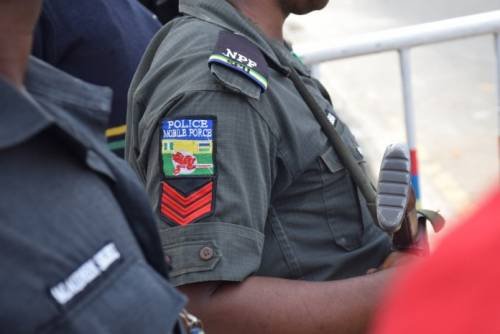
Over 1,700 Nigerian students are stuck in Sudan as a result of the current military battle between the Sudanese armed forces and the paramilitary group Rapid Support Force, which has resulted in over 400 fatalities and 3,500 injuries. Thousands of citizens who fled the nation’s capital, Khartoum, due to the conflict have also been displaced. Students from Nigeria have not yet been evacuated, despite other countries including Japan, Uganda, and Tanzania have already begun the process. Although plans to evacuate Nigerian students and other people have been made by the Nigerian Mission in Sudan and the National Emergency Management Agency, it is now not possible due to the difficult situation in Sudan.
Flights are currently dangerous and impossible due to the burnt-out aeroplanes parked at the airport in Sudan. Abike Dabiri-Erewa, the Chairman/Chief Executive Officer of the Nigerians in Diaspora Commission, has appealed to the fighting parties to consider the Juba Peace Agreement as a fundamental mechanism for the restoration of peace and tranquilly in the country. The Nigerian government has called for a ceasefire to enable the evacuation of foreign nationals.
The majority of the 12,000 Nigerian students who study in Sudan are currently in Nigeria for the Ramadan holidays, according to the Secretary-General. Umar Abubakar, the president of the Jigawa State Students Association in Sudan, claimed that students from Nigeria were leaving their homes for safety as frequent gunfire continued in Sudan, particularly in Khartoum. Abubakar informed a correspondent through voice message that his coworkers were prepared for evacuation. After morning prayer, he continued, they were fleeing for their lives and the situation was dire. Ninety per cent of Nigerian kids attend school in Khartoum, the capital city, according to the man, who also claimed that people were running in different directions and that there were six individuals around him.
Al-Ameen Ahmad, the president of the Nasarawa State Students Association in Sudan, stated that the International University of Africa, which is located behind the military barracks, was frequently the scene of gunfire that kept them awake at night. Nearly 100 female students, according to Ahmad, were transferred from their dormitory to a conference room located inside the school, which is a lot safer than the hostel. He added that students were still completing the evacuation form, and although they were few in number, those without smartphones were being tried to contact.
Halilu Mohammad, a graduate of the University of Garden City in Khartoum, claimed he resided at Soba Hilla, 20 minutes from the International University of Africa, and experienced no problems there. In some locations, he said, there were shortages of water, electricity, and food.
The Federal Government has asked for permission to evacuate Nigerians stranded in the war zone, particularly students. A government official, who wished to remain anonymous, claimed that, unlike the nations whose citizens were being evacuated, Nigeria had no aeroplanes. While the exact date of the evacuation of the Nigerian students studying in Sudan is unknown, the government has reaffirmed its demand for a truce to make it possible.
For More Updates, join our WhatsApp Group and Telegram Channel



